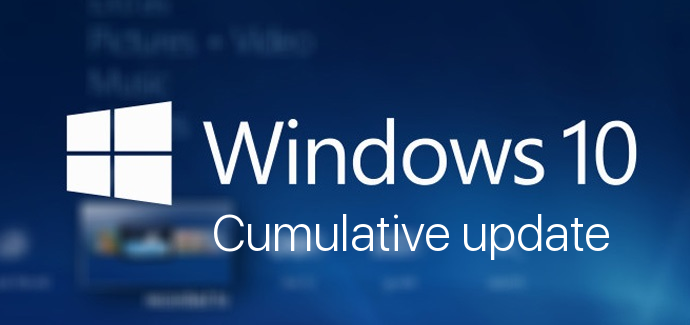Today, a set of cumulative updates for supported Windows 10 is released. This Patch Tuesday brings improvements and fixes related to Internet Explorer, Edge, user name and password verification, and file storage.

Here are the patches and their change logs.
Advertisеment
Windows 10, version 1903, KB4517389 (OS Build 18362.418)
Highlights
- Updates to improve security when using Internet Explorer and Microsoft Edge.
- Updates for verifying user names and passwords.
- Updates for storing and managing files.
Improvements and fixes
This security update includes quality improvements. Key changes include:
- Addresses an issue in security bulletin CVE-2019-1318 that may cause client or server computers that don’t support Extended Master Secret (EMS) RFC 7627 to have increased connection latency and CPU utilization. This issue occurs while performing full Transport Layer Security (TLS) handshakes from devices that don’t support EMS, especially on servers. EMS support has been available for all the supported versions of Windows since calendar year 2015 and is being incrementally enforced by the installation of the October 8, 2019 and later monthly updates.
- Addresses an issue with applications and printer drivers that utilize the Windows JavaScript engine (jscript.dll) for processing print jobs.
- Security updates to Windows Shell, Internet Explorer, Microsoft Edge, Windows App Platform and Frameworks, Windows Cryptography, Windows Authentication, Windows Storage and Filesystems, Windows Kernel, Microsoft Scripting Engine, and Windows Server.
Windows 10, version 1809, KB4519338 (OS Build 17763.806)
Highlights
- Updates to improve security when using Internet Explorer and Microsoft Edge.
- Updates for verifying user names and passwords.
Improvements and fixes
This security update includes quality improvements. Key changes include:
- Addresses an issue in the Keyboard Lockdown Subsystem that may not filter key input correctly.
- Addresses an issue in security bulletin CVE-2019-1318 that may cause client or server computers that don’t support Extended Master Secret (EMS) RFC 7627 to have increased connection latency and CPU utilization. This issue occurs while performing full Transport Layer Security (TLS) handshakes from devices that don’t support EMS, especially on servers. EMS support has been available for all the supported versions of Windows since calendar year 2015 and is being incrementally enforced by the installation of the October 8, 2019 and later monthly updates.
- Addresses an issue with applications and printer drivers that utilize the Windows JavaScript engine (jscript.dll) for processing print jobs.
- Security updates to Windows Shell, Internet Explorer, Microsoft Scripting Engine, Microsoft Edge, Windows App Platform and Frameworks, Windows Cryptography, Windows Authentication, Windows Kernel, and Windows Server.
Other patches released today share the change logs above. The following updates are available to users of the earlier released Windows 10 versions.
- Windows 10, version 1803, KB4520008 (OS Build 17134.1069)
- Windows 10, version 1709, KB4520004 (OS Build 16299.1451)
- Windows 10, version 1703, KB4520010 (OS Build 15063.2108)
- Windows 10, version 1607, KB4519998 (OS Build 14393.3274)
- Windows 10, initial version, KB4520011 (OS Build 10240.18368)
To download these updates, open Settings - > Update &recovery and click on the Check for Updates button on the right.
Alternatively, you can get it from the Windows Update online catalog.
Helpful links:
- Find Which Windows 10 Edition You Have Installed
- How to find the Windows 10 version you are running
- How to find the Windows 10 build number you are running
- How to install CAB and MSU updates in Windows 10
Source: Windows Update History
Support us
Winaero greatly relies on your support. You can help the site keep bringing you interesting and useful content and software by using these options:

Thanks Sergey! Installing while we speak.